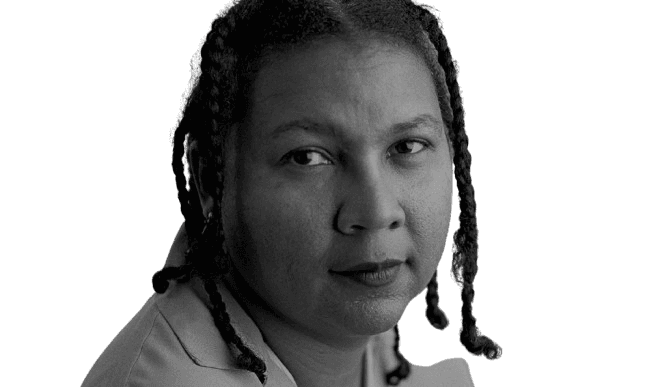Life and achievements
Early life
Gloria Jean Watkins, better known as bell hooks, was born on September 25, 1952, in Hopkinsville, a segregated town in Kentucky. She was raised in a working-class family with six siblings; her father was a janitor while her mother was a maid.
This upbringing, together with her experiences in a racially segregated education system, made her stand against injustices. Hooks became a reader of poets such as Langston Hughes and Gwendolyn Brooks.
She was a bright student and was awarded a scholarship to study at Stanford University, where she completed her bachelor’s degree in English. For her master’s, she moved to the University of Wisconsin-Madison.
She later pursued her PhD at the University of California, Santa Cruz, where she wrote her dissertation on Toni Morrison.
Hooks’ early years were characterized by an understanding of individual and structural oppression, which remained her work’s guiding factor.
At 20, while still studying, she wrote “Ain’t I a Woman?” which criticized the positioning of black women as outsiders in both the feminist and civil rights debates. It was the start of a writing journey that would continue for several decades and take on virtually every subject that exists: gender, race, capitalism, art, and education, to name but a few.
Legacy
The impact of bell hooks is immense, founded based on her mission to make feminism more diverse and accessible for all. Her writings, such as Feminist Theory: From Margin to Center and Talking Back: Thinking Feminist, Thinking Black, are acclaimed books in Black feminist theory and intersectionality.
She is acclaimed for translating the mass of feminist theory for the general populace and for pointing out the fact that mainstream feminism is racially insensitive.
Her academic journey led her to great universities such as Stanford, Yale, and The City College of New York. However, a life changed when Hooks moved back to her home state of Kentucky in 2004. At Berea College, she concentrated on advising students, continuing her research on teaching practices, and founding the Bell Hooks Institute.
Not only was she an academician but a public figure whose impact went beyond the lecture halls. Her writing about Love, especially in the book All About Love, has recently garnered renewed attention, particularly after the Black Lives Matter movements following the deaths of George Floyd and Breonna Taylor.
Bell Hooks passed away in October 2021, and she became one of the most influential scholars in feminist theory, critical race analysis, and cultural critique. Her work remains influential to scholars, activists, and readers to this day.
Milestone moments
Nov 7, 1981
Ain’t I a Woman? was published. Black Women and Feminism
Hooks produced her first significant work in 1981: the book Ain’t I a Woman? Black Women and Feminism.
The book pointed out the invisibility of Black women in the feminist movement and Black power movements.
The book dealt with how slavery and its effects influenced black womanhood, making Hooks a figure in the annals of postmodern feminism and creating discourses on intersectionality before the term went mainstream.
This work ensured that Hooks became a prominent figure in the discourses on feminism. It is a classic work in black feminist literature that inspires academics and activists.
Mar 14, 1984
Feminist Theory: From Margin to Center
In 1984, Hooks published Feminist Theory: From Margin to Center.
She took her critique further and accused the mainstream feminist movement of being elitist, placing the white, middle-aged woman at the centre while disregarding the black woman and the poor woman.
The idea of intersectionality was developed in this book and called to include the experiences of oppressed women by feminists.
The book is now one of Hooks’ most popular works. It changed the direction of the feminist movement and urged people to unite across the race, class, and gender divide.
Jul 25, 1994
Teaching to Transgress as a publication
Teaching to Transgress: Education as the Practice of Freedom was published in 1994 to present Hooks’ view on education as emancipation.
In the book, she developed the idea of engaged pedagogy based on Paulo Freire’s critical pedagogy.
This book changed how educators and advocates for students of colour and other oppressed groups thought about education and made it required reading for anyone concerned with social justice in education.
Hooks maintained that education must be the practice of freedom, through which students and teachers must be critical and activist.
Jul 30, 2000
Publication of All About Love: New Visions
In 2000, Hooks published All About Love: New Visions, which was about Love as a political subject and a way of creating change.
This work questioned the conventional meanings of Love and proposed a shared and encompassing vision of Love.
All About Love initially did not receive much attention but started to be reread in the 2020s, especially during the George Floyd protests, to seek Hooks’ guidance on justice, Love, and togetherness.
The book is still one of Hooks’ most famous works, and people continue to find hope in movements for social justice in which Love is seen as a means of emancipation.
